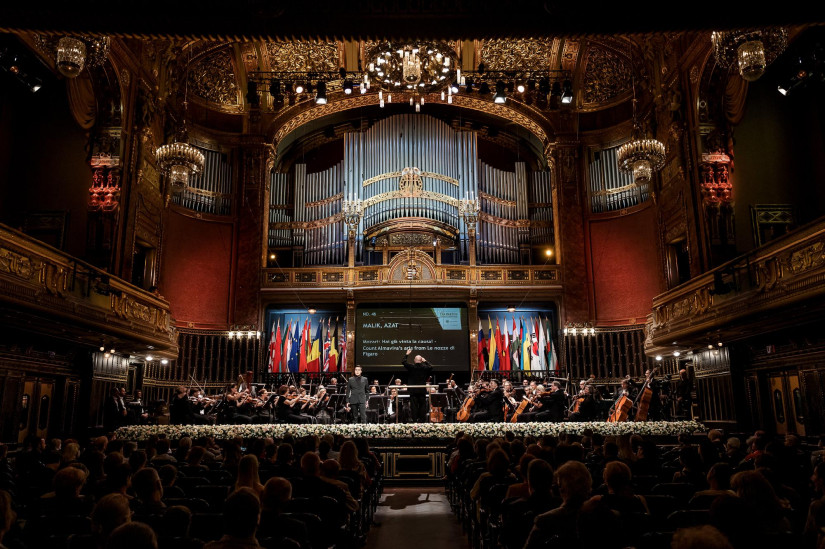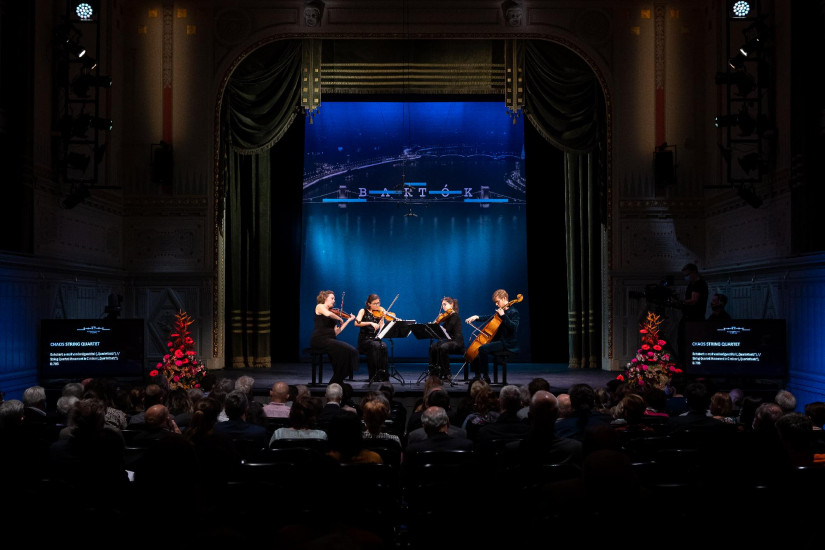Bartók World Competition joins prestigious international association
Liszt Academy's competition was elected a member and was praised for its high quality by World Federation of International Music Competitions’ General Assembly. Delegates also showed keen interest in the professional issues of the university's Éva Marton International Singing Competition, which had been a member for three years.
For the first time since 2019 due to the pandemic, the World Federation of International Music Competitions (WFIMC), which includes more than one hundred and ten outstanding competitions, has held its General Assembly’s session live.
The Bartók World Competition is the second of Liszt Academy's events to become a member of the WFIMC, with the Éva Marton International Singing Competition having been elected by the General Assembly in 2019.

The WFIMC, founded in 1957 and based in Geneva, includes, among others, the Mozart Competition in Salzburg, the Fritz Kreisler Violin Competition and Beethoven Piano Competition in Vienna, the Sibelius Violin Competition in Helsinki, and others, the Chopin Piano Competition in Warsaw, the Queen Elisabeth Competition in Brussels, the Van Cliburn Piano Competition in Texas, the Long-Thibaud Competition in Paris, the Arturo Toscanini Conducting Competition in Parma and the Liszt Piano Competition in Utrecht.
András Csonka, Programme Director of Liszt Academy and Project Manager of both its international competitions, attended the General Assembly in Bydgoszcz, Poland. He has stressed that the WFIMC stands out among similar organisations in that it places great emphasis on discussing professional issues and finding real solutions. He added that recently, changes have been made in the strategy of the group, resulting in the creation of an associate membership for non-competitive events and a stricter definition of exclusion criteria. This has reduced the time limit from 5 years to 3 years for an event to cease to be a member if it is not represented at general meetings and is inactive.
He has also mentioned that one of the key issues discussed at the current event was contestants’ country of origin, i.e. how to register and refer to a person born in one country, studying for years in a second country and now living and working in a third country with a residence permit. The answer to this question, concerning a very common circumstance in competitions, is still being discussed.
András Csonka has also said that the general assembly praised the achievements of Liszt Academy's Bartók World Competition since its launch five years ago, pointing out the fact that it had become visible on the international stage and the high quality of the Budapest university's annual events.

The Éva Marton International Singing Competition, which will be held for the fifth time this September at Liszt Academy, was also the subject of lively professional interest. András Csonka had a prominent place at the protocol dinner, and he held direct discussions with WFIMC President Peter Paul Kainrath and Secretary General Florian Riemer, as well as with delegates, on professional issues related to the organisation and promotion of the event. He negotiated with representatives of the Mirjam Helin International Singing Competition in Helsinki, the Moniuszko Competition in Warsaw and the German ARD Competition, among others, mainly on the pandemic situation, managing of the Marton Competition, recruitment techniques and communication with the general public.
Dr. Andrea Vigh, President of Liszt Academy, said that the election of the Bartók World Competition and the strong professional interest in the Éva Marton International Singing Competition are proof of the Academy’s recognition abroad, its international visibility and the world-class work that takes place at the Academy.


